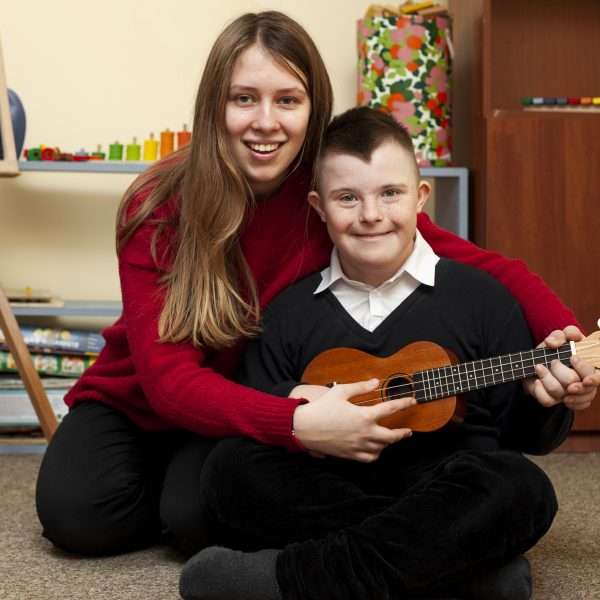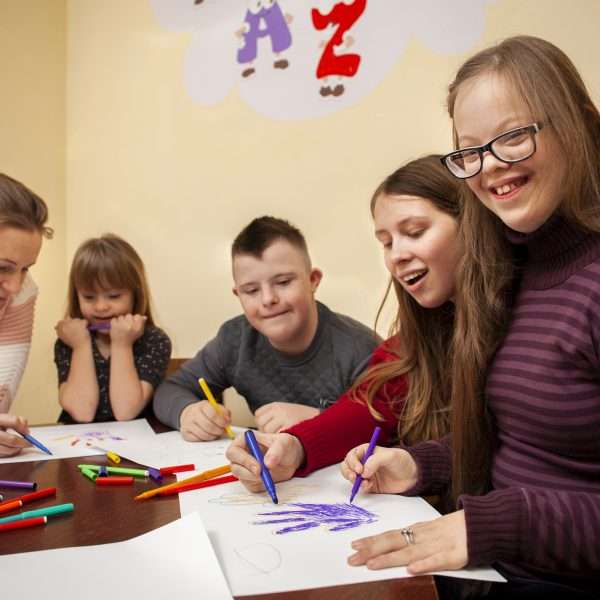All About Special Education
Special education is providing various aids to help children with disabilities. Special education stands as support in their learning, activities, and routines. There is no unitary or universal approach to special education. Special Needs refer to the special educational requirements for those with learning disabilities, emotional or behavioral problems, or physical disabilities It is customized to fulfill the requirements of students with disabilities. Special education doesn’t mean allocating kids in a special classroom all day long. In fact, federal law says that children who get special education services should learn within the same classrooms as other kids in the maximum amount possible.

Special education or special needs education, is the education of kids who differ socially, mentally, or physically from the common to such an extent that they require modifications of usual school practices. It serves children with emotional, behavioral, or cognitive impairments or with intellectual, hearing, vision, speech, or learning disabilities. It also serves gifted children with advanced academic abilities and kids with orthopedic or neurological impairments.
The services and supports differ from student to student. Each child has a unique way of learning and grasping things. It is all about the child and giving them the adequate attention they have to form progress in class. Kids who qualify for special education have an Individualized Education Program (IEP). They get individualized teaching and other resources at no cost to their families. Specialists work with kids on strengths and also on challenges. And families are key members of the team that decides what kids have got to thrive in their classroom.
Special classes are meant for kids who have above-average intelligence, kids who have intellectual disabilities or who have visual, hearing impairments, or who are diagnosed with other disabilities. This kind of organization allows children to attend nearby schools that provide specialized instruction, for students who need extra help. In contrast, residential schools accommodate special-needs children. For gifted students, specialized programs offered by special schools include advanced classes that differ from the regular curriculum, an approach called enrichment, and grade-level advancement linked to educational achievement, an approach called acceleration.

Special education programs are designed for those students who are mentally, physically, socially, and/or emotionally delayed. The word delay here conveys a developmental delay, signifying an aspect of the child’s overall development that is his\her physical, cognitive, scholastic skills that place them behind their peers. Due to these special requirements, students’ needs cannot be met within the traditional classroom environment. Special education programs and services adapt content, teaching methodology, and delivery instruction to meet the appropriate needs of each child. These services are of no cost to the family and are available to children until they reach 21 years of age. States have services set in place for adults who require specialized services after age 21.
However, with appropriate treatment and interventions, people with learning disabilities can achieve success and can cope with their disabilities. The most common treatment for learning disabilities is special education. Generally, trained educators perform a diagnostic educational evaluation for assessing a child’s academic and intellectual potential, in addition to the child’s level of academic performance. Once this evaluation is completed, caretakers, teachers, and doctors take the basic approach to teach learning skills, by building the child’s abilities and strengths, while compensating and correcting for disabilities and weaknesses. Children with learning disabilities need to have an organization or institute that provides for their demands while working on their strengths and compensates for their weaknesses.
As per the right to education act (RTE) in India, no school can reject admission to any child on any grounds of discrimination and children are not to be segregated or labeled at any point of time before or after admission. Each classroom has to be an inclusive classroom welcoming all types of learners and allow them to participate in different learning activities. Having access to inclusive education is thus an advantage for children with special needs.
